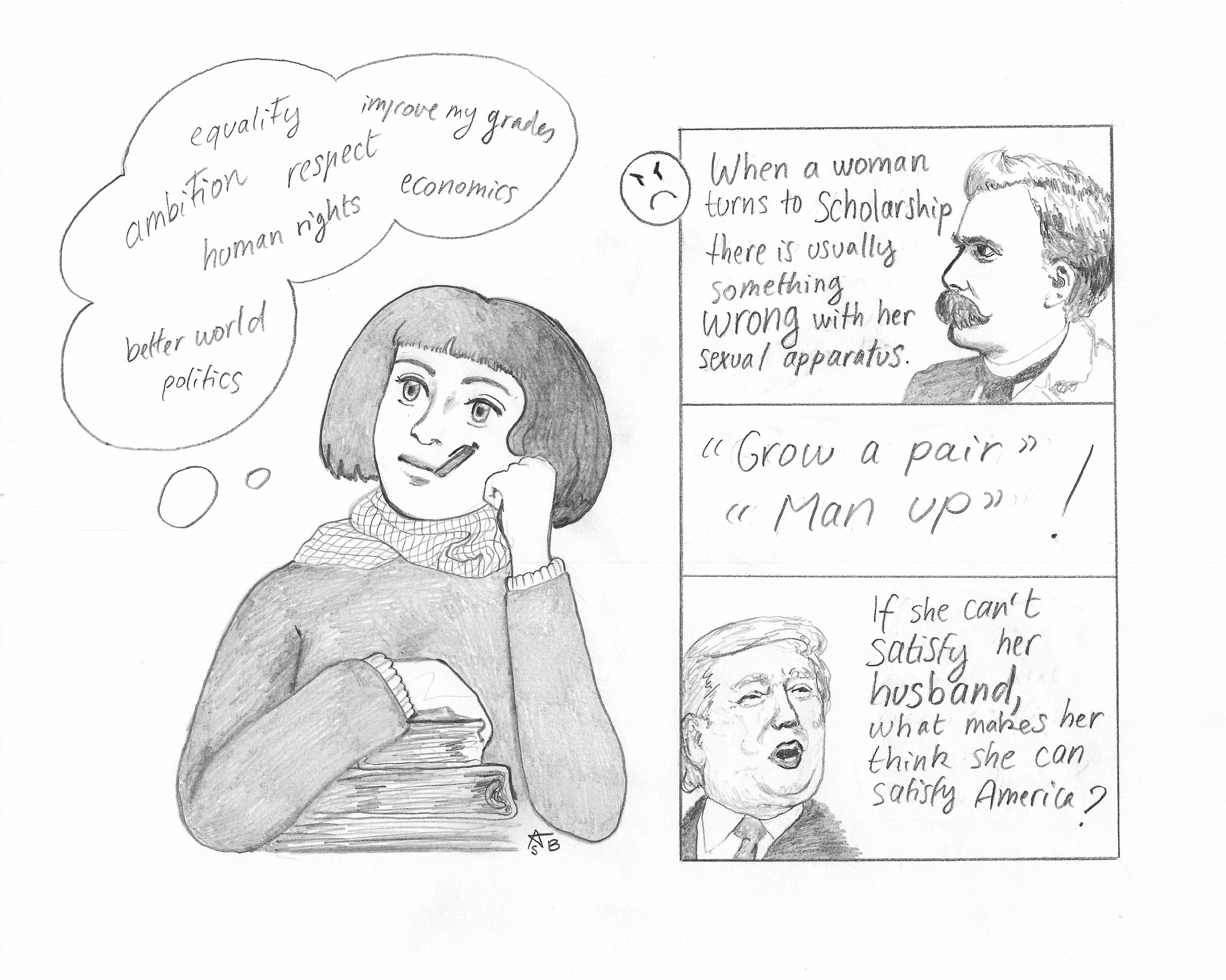By Diana Glebova

Image: Sacha Besson
Considering the historical prevalence of women’s oppression in society, the past few centuries have been an astronomical feat for the progression of women’s rights. The suffrage movement, integration of women in sports, a move for equal participation of women in politics, and even the adaptation of pants, have been cornerstones in the female’s path for equality between the sexes; progressively destroying the notion that the woman should only be defined by her presence in the home, or the “cult of domesticity.”
At Sciences Po’s Reims campus, the 65% majority of female students illustrates the leap that women as a society have made in the study of politics; as a mere 200 years ago Rousseau stated in his publication of Emilius that women’s studies should be limited to “points of practice,” and were distinct from those of men. But as the lines of gender roles continue to be blurred in our advancing societies, speaking to women on campus, it is evident that old underlying obstacles remain, and are present as strong as ever in our everyday lives.
In discussing the notion of perceived women’s roles in society, it is clear that the initial blueprint of what a woman should be initially stems from the family. One second year student states that, “growing up, my mother always told me to never be as intelligent as a man.” With statements such as these shaping our everyday behaviors from a young age, it is easy to submit to such an ideology, especially if it is coming from your closest role models.
This dichotomy of gender roles also plays into how we perceive ourselves, and also the purpose of our very education. Perhaps not always serious, comments such as, “maybe I’ll find a rich husband” are commonplace at elite universities. Although there is nothing inherently wrong with the desire to be financially stable and in an exogamous marriage, the notion of going to an elite university for this purpose is disheartening, as it only illustrates the continued dependency of women even in the 21st century.
Such ideology is perpetuated through the gender roles of society, as I have been witness to several comments from men such as: “I would only marry a woman who made less money than me.” This desire for financial dominance prolongs the inequality of wages and job opportunity for women, as such statements only serve to limit the rigid career fields and available positions. Most importantly, such comments become inherently imbedded in our psyche, as hard as we may try to deny their impacts.
However, speaking to other women on campus, it was surprising to find cultural variance towards the role of women in society. One first year student states that “my mother has always insisted that I make a name for myself and to never rely on anyone but myself.” When asked if she would give up her future career for a guaranteed life of luxury and a happy family, she responded “I would never even consider giving up my impact on society.”
Clearly, the discrepancy on the 21st century “cult of domesticity” varies between families, culture, and personal beliefs. However, in order to eradicate the unwanted pressure of adhering to a societal construct, both men and women must continue to question the nature of their ideologies, and to educate themselves and others on the progressing equality of sex.
On a daily basis women at Sciences Po engage in sports and political discourse, and even outnumber men in the classroom. Around the world, many of the highest political positions are occupied by women. 200 years ago, Rousseau would have been aghast, perhaps even appalled at the things women have come to define their lives by. This generation of women will further determine what it means to be a woman, on the 21st century stage.
Diana Glebova is a first year student at Sciences Po Campus of Reims. Born in Donetsk, Ukraine; growing up in the land of 10,000 lakes and six month winters: Minneapolis, Minnesota. Has a passion for long runs, poetry, and pot luck dinners. The Grapevine runs one Tuesday every month.
Other posts that may interest you:
- The Trouble with ‘Ecocide’
- Carbon dioxide removal – hit or miss?
- Local Victories for Turkish Opposition — A Sign of Hope?
- Are France and Japan a Mismatch Made in Heaven?
- A Reflection on Dark Tourism
Discover more from The Sundial Press
Subscribe to get the latest posts sent to your email.





